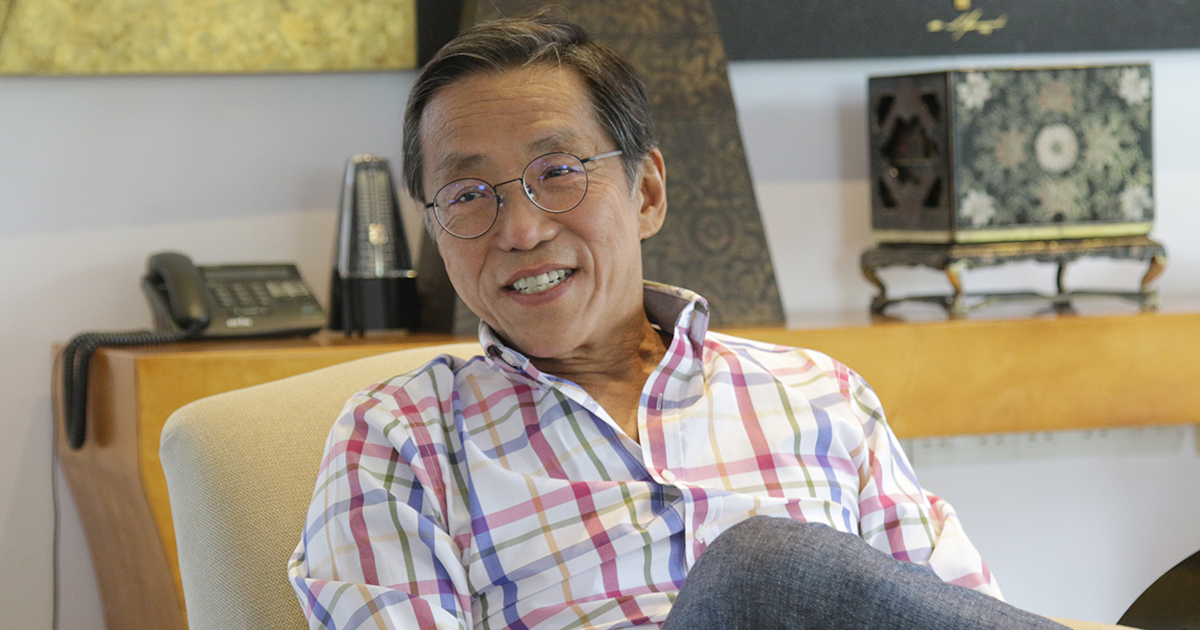As a former journalist, Ho Kwon Ping probably knows that he has committed a gaffe when he made a vague passing remark on the ministerial salaries, without providing clarifications.
When the founding chairman of Banyan Tree Holdings and Singapore Management University (SMU) was interviewed by Channel NewsAsia last week, he discussed the salaries for top CEOs and briefly commented on his salary:
"My salary is decided by the board and my salary is lower than the ministers so I probably belong to the group of people who might be considered mediocre, unfortunately".
This remark, published online last weekend, led Deputy Prime Minister Teo Chee Hean to comment in Parliament on Monday, Oct. 1 that "even knowledgeable, well-meaning people (like Ho) who have a deep interest in politics can be susceptible to this (misconception of very high ministerial salaries)".
New book out
It was in this context and mood that we met Ho at his residence to speak about his book Asking Why, a collection of speeches and writings during his life so far.
Our substantive interview on Ho's reflections about his life and family would be published on Mothership weekend on Sunday, Oct. 7.
In the meantime, let's hear him out with regards to the online brouhaha about his "dig" at ministerial salaries.
Ho's quite chill about DPM Teo's parliament remarks
What is Ho's take with reference to DPM Teo's remarks?
Ho said that he was indeed "well-meaning" and had always said publicly that he support "high salaries for the public service, civil service and clearly for the political service".
Ho added:
"I'm glad that DPM said that it (Ho's comment in CNA) was well-meaning, and knowledgeable, and that it may well be a misconception. I'm not at all aggrieved by his comments, I don't take it as a harsh criticism, and I think he was trying to set his record straight (on ministerial salaries).
I don't want to get drawn into the whole thing because fundamentally, I believe in high salaries for civil servants and for ministers."
So what happened during his CNA interview?
Ho said that he could imagine that the way the interview was structured, "it would seem as if that actually I was not entirely truthful, that I was trying to make a dig at ministerial pay".
That's far from the truth, he said emphatically.
Ho clarified that he was in fact referring to the process of basic remuneration rather than the absolute amounts, adding that he was not “corrected” by the interviewer.
He was referring to basic salaries and she used his total compensation instead, before concluding that "anyone in the corporate world will realise the two are quite different".
And his stand on ministerial salaries?
And since we are on the topic of ministerial salaries, does Ho have a view on whether Singapore should, in DPM Teo's words in Parliament, have ministerial salaries that are competitive, transparent and recognise the ethos of public service?
Ho said that he supports high salaries because he truly believes that Singapore needs to have competitive salaries for politicians.
"We should not make the pretense that the President of the United States gets so little and therefore everybody should do the same thing...
So I think a simple, transparent, high salary attracts people who have to make sacrifices and very importantly, it creates an ethos and culture where people don't even have a red eye syndrome, which is usually the start of corruption. I think I support it (high salaries for ministers)."
But Ho wondered whether the process of how the ministerial salaries are computed can be improved further by becoming simpler and more transparent.
"My sense is that it has gotten so emotional, as DPM has said, that it has become politicised. Couldn't we link it somehow to what the top public service people are getting?
By doing so, you de-politicise it because if you have to criticise ministerial pay, you have to criticise the entire structure of civil service pay, which we also recognise as much higher than in Thailand or Indonesia and elsewhere."
Ho said that the high salaries of the entire public service is one of the key reasons why Singapore has such a reputation for incorruptibility.
To conclude, Ho's suggestion is to link political salaries more closely to a de-politicised entity that still ensures market competitive salaries. This is so that Singapore can continue to attract the brightest to lead the country.
[related_story]
Ho quipped:
"It is a joke to use the argument that we should have low salaries for our politicians, simply because other countries have very low salaries (for politicians).
That is playing to the gallery...
And it has been proven in every country in the region where politicians get very low pay so that they can think like the people (and so on). It's a sure-fire way to get corruption."
If you like what you read, follow us on Facebook, Instagram, Twitter and Telegram to get the latest updates.
